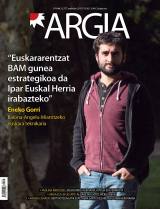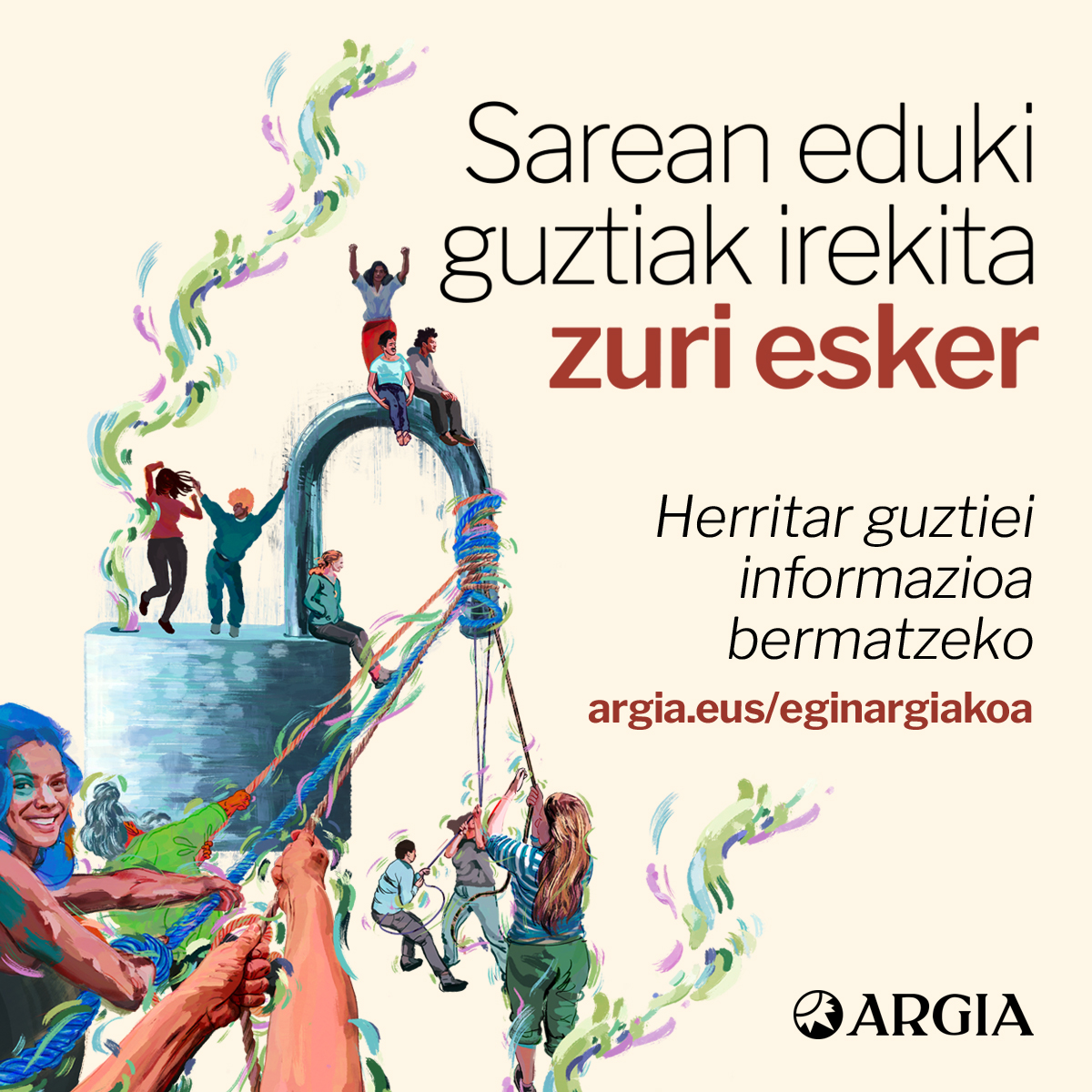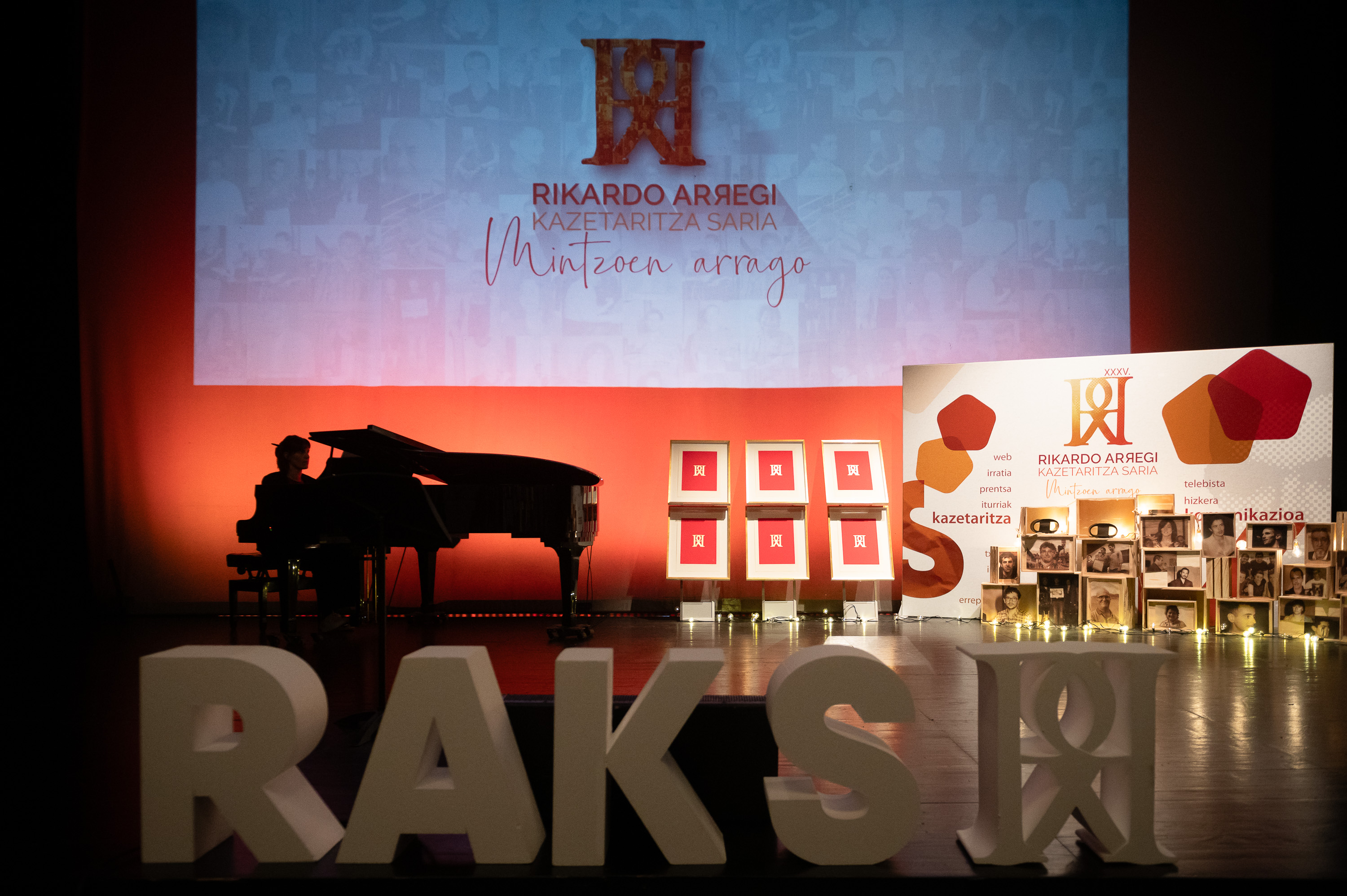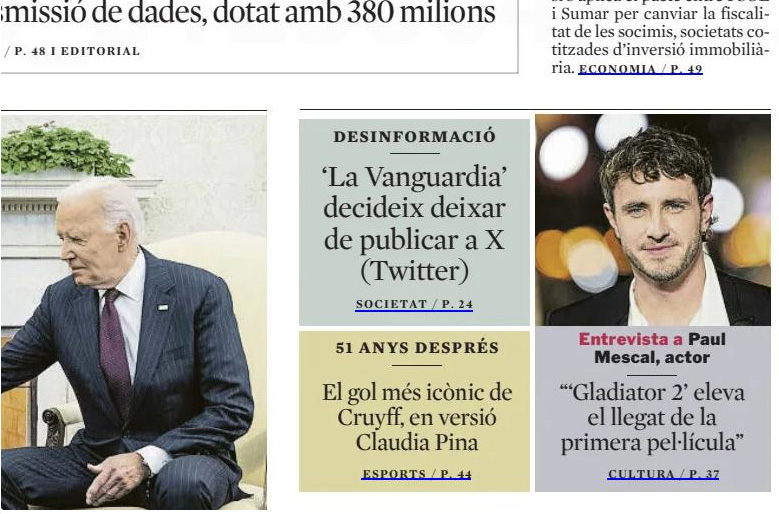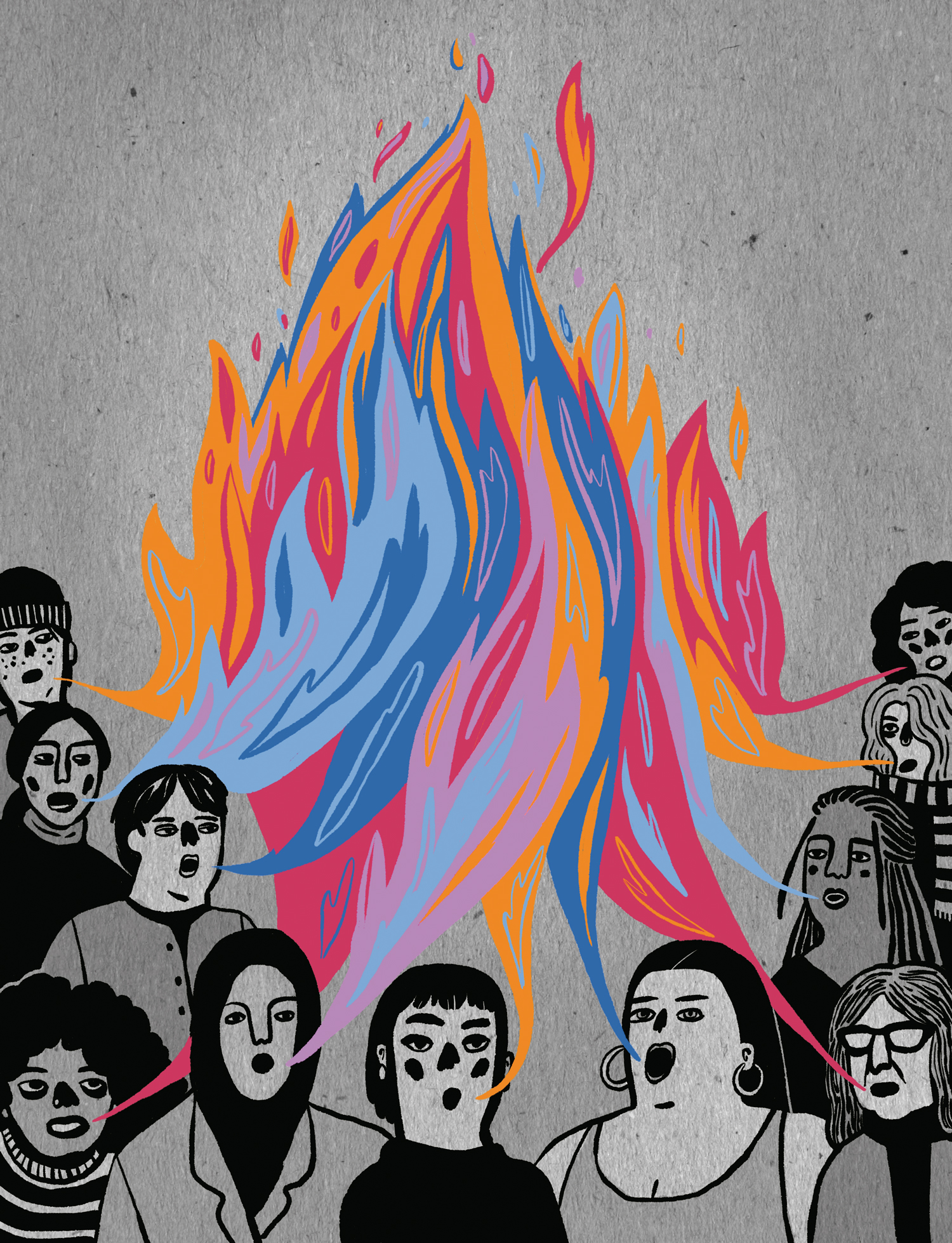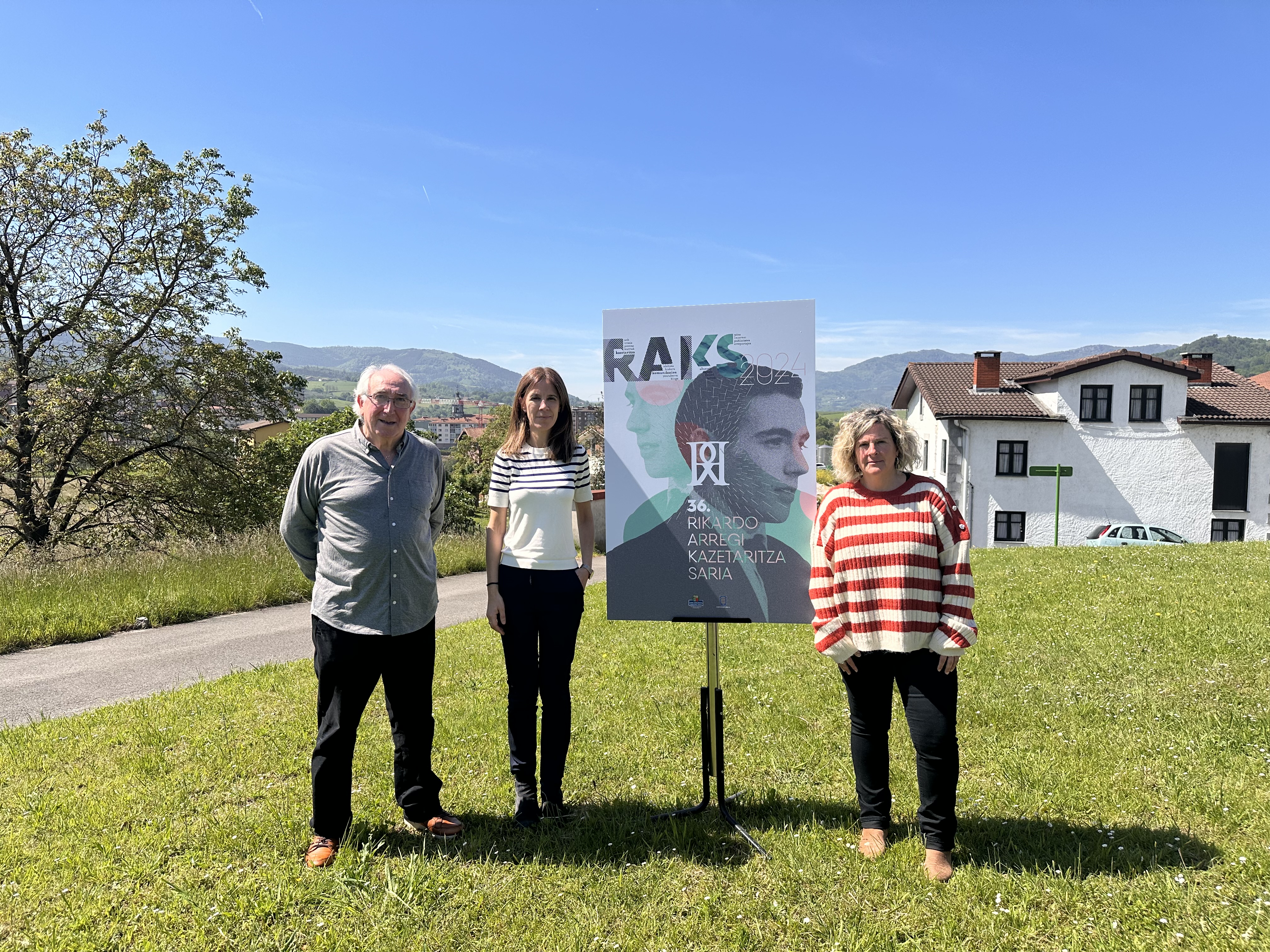Internet, key to strengthening the journalistic project
- The ARGIA website turns 20. He was a pioneer in the Basque media in jumping to the net with Ttipi Ttapa, from the Mountain of Navarra, thanks to the vision of his colleagues of that time and his technically qualified fellow travellers. Since then, the world of journalism has changed radically and today ARGIA is not understood without taking into account the work done in the network. We want to celebrate the anniversary by renewing the web and, by the way, launch this reflection on the Internet.
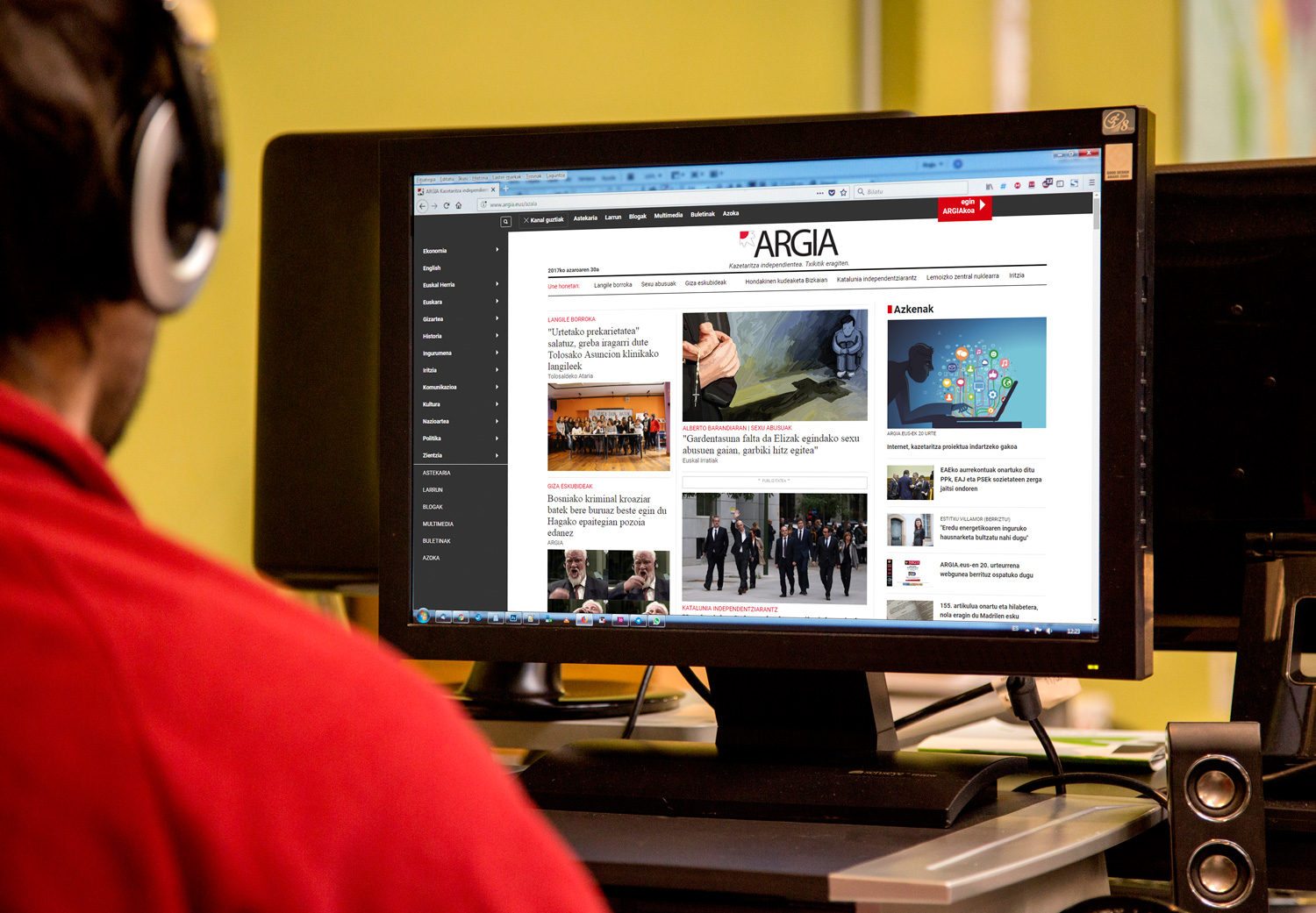
Sunday, 1 October, Referendum Day in Catalonia. The writing of ARGIA has decided to make a bet: despite being a small team, all journalists will follow the issue. Two journalists from Barcelona, the rest from home, organized in groups by turns, will enter the whirlwind of information from 04:00 a.m. until 4:00 a.m. the following day. Collecting testimonies, searching for data or writing news, collecting material that the Basques are sending from Catalonia, informing people through all available channels... and the next day, as usual, we will send the magazine to the printing press and continue with the reactions on the net. A working group from the paper journalism culture could be used to imagine the leap that has been forcefully made into the digital world. Result: On October 1, ARGIA received the largest number of visitors to its history on the web, hundreds of thousands of people on social networks and a working group that shared the feeling of having successfully endured the difficult challenge.
While it is difficult for young generations to imagine a world without the Internet, until recently it has been. Just as human relationships are changing, the way we do journalism has also changed. According to the veterans, the information and chronicles sent in real time by email, were sent manuscripts and typed in writing, or were sent in diskettes to the writing, sending them by bus from many parts of Euskal Herria. From the moment the news was produced until its publication, the tempos were other; there was no alternative but to draw a weekly in a writing.
It's not been two decades since ARGIA started changing everything with its window on the net. In 1997, together with Ttipi Ttapa, he opened the way of journalism in Basque on the Internet, before most of the Castilian mainstream media in the Basque Country, although the Internet still generated great controversies and misgivings in the sector. Would the Internet kill paper? How can projects be economically maintained?

Since the main objective of ARGIA has been dissemination, it decided from the beginning not to put a lock on online content. The website allowed journals that arrived at the homes every week to be made available in an open way, as well as hundreds of interviews previously digitized between 1963 and 1996. In this way, it was intended to provide a more complete online service to subscribers and reach an audience that would hardly buy the journal in the newsstand. However, the difficulties were enormous, ARGIA had to fulfil its role in the network and had to find an economic approach that would allow it to retake the investment in some way.
Although in 2002 they were about to close the website, a question was imposed in the Lasarte-Oria writing: “Is the ARGIA communication project possible without being on the Internet?” They decided no, and from then on, until 2017, the project has come in small steps.
Keys to the work of ARGIA
The intention of this report is not to make a chronological review of the projects and steps that have been taken on the Internet over these twenty years, but to share how we understand the Internet to explain how we work towards the future.
Independent journalism: In the counterpoint of the media, dependent on banks, multinationals and political parties, we try to provide keys to knowing and interpreting the world in which we live. We are coping with a coherent narrative of today, putting at the centre the concerns and interests of the citizens, rather than the elitist powers.
Social function: In addition to working on our own agenda, we keep track of events that are of interest to our community. To this end, we are trying to accommodate the debates and citizens' initiatives that come together on various issues, aware that they have no place in most of the media.
Values in practice: Many of the issues we work on are the transformative values that ARGIA endorses, so we try to put them into practice in the company and in the daily functioning of the workers.
Speed and many formats: The Internet requires a fast pace and the journals we take out on paper have their own logic. Just as the network can be frantic in rhythm, the Semanaries, Larrun and News Keys offer a breath to work the information with a different depth. However, it is undeniable that the Internet has accelerated everything.
Free culture: In a language as small as ours, as content creators, we prefer free collaboration. We distribute all of our contents under the Creative Commons license, we are pleased that other media or agents disseminate our contents and we try to disseminate the contents of the licensed media CC-BY-SA. However, the granting of Internet subsidies by public institutions according to website statistics – without taking into account many other factors – makes it difficult for the media in Basque to want to maximise their information – reducing their influence – as the number of visits to their website is a matter of concern. In ARGIA, in this case, we give priority to the dissemination of our information, although some practices do not bring visits to the web.
Multilingual project focused on Euskera: ARGIA is a project made in Basque, an agent for linguistic normality. Without ever losing sight of this, we believe that the network is an excellent platform to provide information in as many languages as possible. In the ARGIA English channel we offer information from Euskal Herria in English, and in the media in which we collaborate internationally they publish ARGIA contents in other languages such as El Salto del Estado español, La Directo de los País Catalanes or Sermos de Galicia, for example. From time to time, we do experiments: We wrote a report on the Korrika, the repression that the Basques suffered for centuries by the Spanish and French States as a linguistic community, we translated 39 languages into Auzolan, and we addressed the spread of our voice to the whole world.
Multimedia content: Starting with the loose videos, we have addressed the television programmes Hitzetik Hulera, Beranegi, Damutuko Zaute or Zautela. In addition, the Basques are building the Multimedia channel that makes the audiovisual material that we are creating from the universe of the Internet a warehouse. There you can find over 2,500 reports, interviews, documentaries, conferences, popular videos, short videos and more.
Comprehensive project: Paper feeds the network and the network the paper. We produce a weekly, a website, a monthly magazine from Larrun, a yearbook from The Keys of Today, a Vital Orchard or books like Zuloan. ARGIA People, with their financial contribution, drive the whole project, do not have a specific product, for example, the weekly “shopping”.
Stirring from a young age: Concerned about the current political and economic situation, from our smallness we try to promote values that always put people at the centre.
In a year 1,000 ARGIA More new people
Pello Zubiria said the following in the report on ARGIA's 10th birthday in 2007. “In a small culture, a small professional group has other possibilities to compete thanks to the Internet. It does not solve the world, but it gives it new opportunities if, in addition to talent, courage and desire to work, it succeeds in taking advantage of those opportunities.”
Helped by the Catalan effect, the October data have been the best in the history of ARGIA. According to Google Analytics, ARGIA has received over 213,869 visits per month on its website; in the same period of time on Facebook we have reached 1,980,323 people with links, photos or videos; on Twitter the tweets sent by @argia have exceeded 4 million reproductions – regardless of the content of ARGIA that each editor has sent from their account –; Instagram is taking more of 1,200 members.
On the Internet the work done by ARGIA has a price: we are more and more people. Since last December the subscription model was modified, a thousand new partners have joined in one year to boost the project financially. Not even the oldest optimists could have imagined the situation.
The illusion of continuing to work hard as a team is that everything is possible thanks to the strength of the people. By doing journalism, we are committed to continuing to act from a young age, convinced that without information there is no democracy. We claim the importance of independent media and want to promote sovereignty in the field of information.







